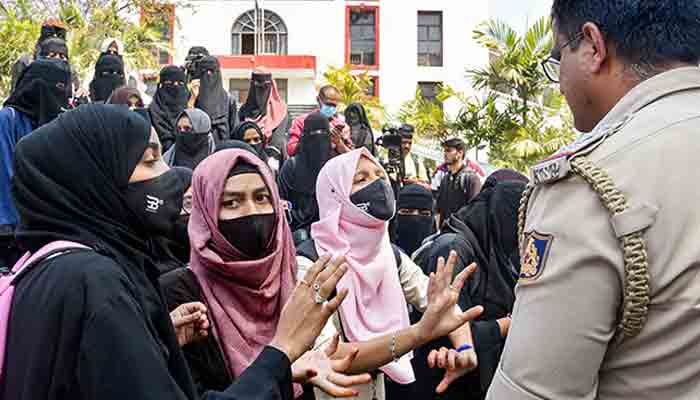Sustainable architecture is a design approach that seeks to minimize buildings' negative environmental impact by maximizing efficiency and moderation
BANGALORE: An Indian court upheld a local ban on wearing the hijab in classrooms on Tuesday, weeks after the edict stoked violent protests and renewed fears of discrimination against the country’s Muslim minority.
Southern Karnataka state was on edge for several weeks after a small group of girls in their late teens were prevented from wearing the garment on school grounds at the end of last year.
Meanwhile, Pakistan on Tuesday expressed serious concern at the ruling of the Indian court, saying the decision manifestly failed to uphold the principle of freedom to religious practices and impinges on the human rights.
After weeks of deliberations, Karnataka’s high court ruled that the wearing of hijab “does not form a part of essential religious practice in Islamic faith”. The judgement said schools had reasonable grounds to impose dress codes that forbade the headdress in the interests of preventing divisions on religion and other grounds.
“The aim of the regulation is to create a ‘safe space’... and the ideals of egalitarianism should be readily apparent to all students.”
Hundreds of extra police officers were deployed around Karnataka on Monday ahead of the ruling, though there was no sign of fresh protests by mid-afternoon.
Asaduddin Owaisi, one of the country’s most prominent Muslim politicians, said Tuesday’s verdict had “suspended fundamental rights to freedom of religion” and urged a Supreme Court appeal.
“I hope this judgement will not be used to legitimise harassment of hijab-wearing women,” he wrote on Twitter.
The state high court initially ordered a temporary ban on the wearing of all religious symbols — including Hindu and Christian ones — in schools.
Schools later reopened under heavy security with a ban on gatherings of more than four people. In several instances, authorities made teachers and pupils take off their hijab publicly at the school gate.
A number of Muslim pupils told local media that they would rather go home than be made to choose between their faith and education.
“My daughter has been wearing the hijab since she was five years old. It is to protect her dignity,” Nasir Sharif, 43, the father of a 15-year-old girl, told AFP last month. “What they are asking us to do is humiliating.”
Pakistan expressed serious concern at the Indian court’s ruling, with the Foreign Office saying: “Equally sad is the fact that the judiciary in India, which is expected to act as a bulwark against dehumanisation, stigmatisation and discrimination against minorities, has completely failed to uphold the principles of justice and equality.”
“This decision marks a fresh low in the relentless anti-Muslim campaign where even the pretext of secularism is being weaponised to target Muslims,” the statement said.
“It is deeply concerning that the malicious trend of characterising Muslims as others or 20 per cent by prominent BJP leaders which is continuing with appalling impunity is now also being translated into decisions by the judiciary.”
You May Also Like
ISLAMABAD: The ruling Pakistan Muslim League Nawaz (PMLN) emerged victorious on most seats in the by-elections, according to
SYRIA: Rockets were fired late Sunday from northern Iraq at a military base in Syria housing a US-led coalition, according to Iraqi security






